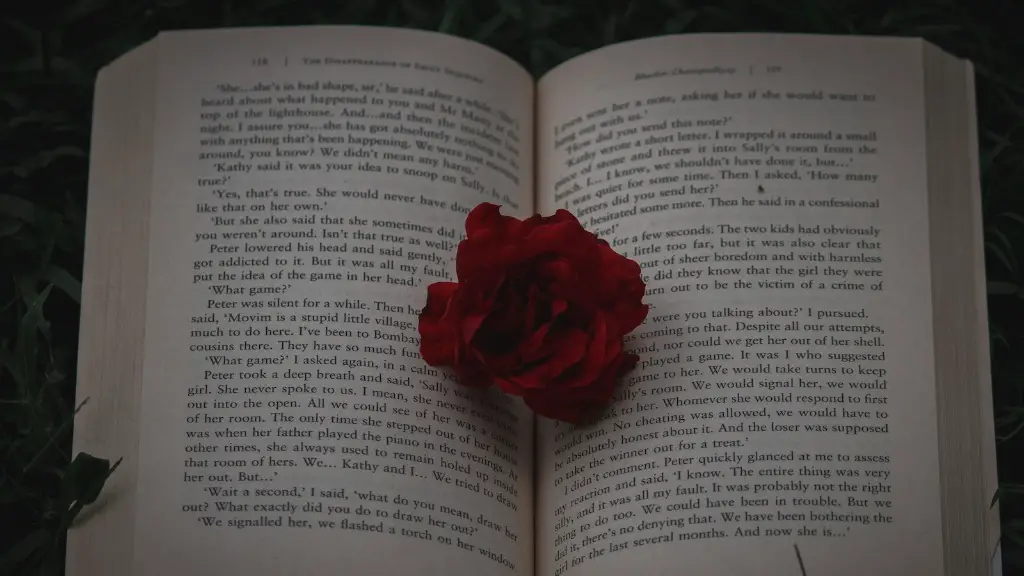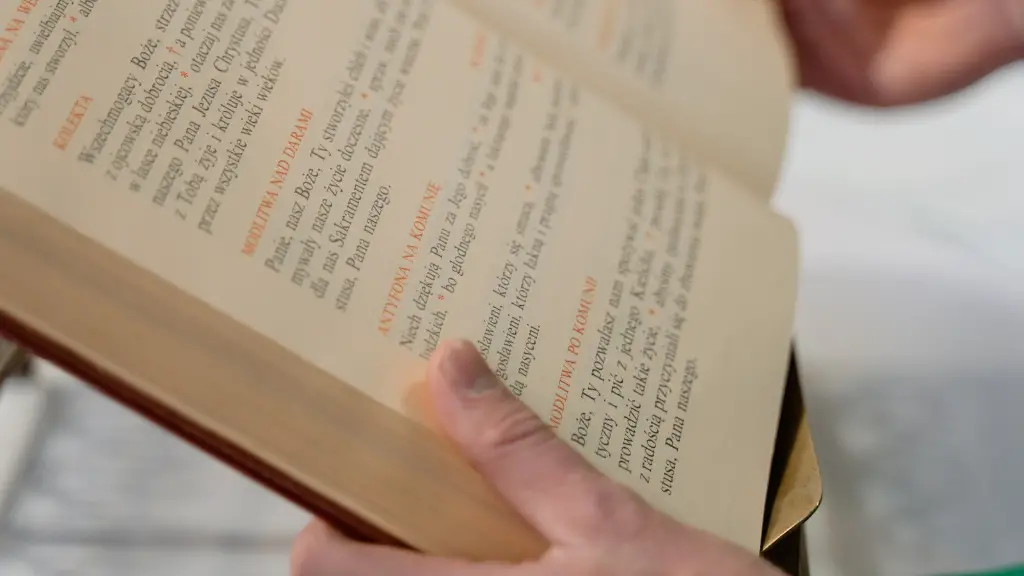When it comes to poetry, repetition can be used for a variety of purposes. It can be used to emphasize a point, create a particular mood or setting, or emphasize the structure of a poem. Repetition can also help create memorable and powerful lines of verse that evoke strong emotions in readers. Repetition is often used to emphasize an idea or thought, which is particularly important in poetry, as words and phrases that repeat multiple times often stand out in the poem, aiding in conveying the poem’s message. For example, in a sonnet the repetition of a phrase can help the poet get their point across without the need for a long and complex set of lines.
Repetition can also play an important role in setting the tone for a poem. It helps create a certain atmosphere and helps guide the reader through the poem. This is often done through the use of words and phrases that are repeated multiple times throughout the poem. For example, a poet might choose to use words such as “darkness” or “mourn” to create a certain mood or feeling in the poem. Other words or phrases, such as “death” and “tragedy” can also be used to create an atmosphere of despair and sadness.
Repetition can also help to convey emotion within a poem. By repeating certain words or phrases, the poet can create a strong emotional connection with the reader. This will help to emphasize the ideas and feelings being expressed in the poem. For example, if a poem is about loss, a poet might choose to use phrases such as “once,” “accustomed,” or “vanished” to create a strong emotional connection with the reader. Repetition can also help to create tension within a poem, as words that are repeated multiple times can create a feeling of anticipation or urgency in the reader. This can create a powerful and engaging experience for the reader.
Repetition can also be used to emphasize the structure of a poem. By repeating certain phrases or words within a poem, the poet can create a sense of rhythm and pattern. This can be done by using words or phrases that are repeated multiple times throughout the poem. This technique can be used to create a regular pattern in a poem and emphasize the structure of the poem. For example, a poet might use the same phrase at the end of each line, creating a pattern of rhyme. This will create a feeling of unity and structure within the poem.
Repetition can also be used to create memorable lines of verse that have a lasting impression on readers. By repeating certain words or phrases throughout the poem, the poet can create a powerful and memorable image in the mind of the reader. This will help the poem come alive for the reader and will help to establish a strong emotional connection with the poem. For example, if a poem is about the beauty of nature, a poet might choose to use the phrase “the sun on my face” to create a powerful image in the mind of the reader.
Examples of Repetition in Poetry
Repetition can be used in a variety of ways in poetry. Here are some common examples of repetition within poetry:
- Repetition of a single word or phrase within a poem.
- Repeating a motif or theme throughout a poem to emphasize a particular idea or thought.
- Repeating certain sounds, such as rhymes or assonance, to create a pattern or structure.
- Repeating a certain image or idea multiple times to create a lasting impression on the reader.
The Role of Repetition in Poetry
Repetition can play an important role in poetry. It can help to emphasize a particular idea or mood, create a lasting impression on the reader, and emphasize the structure of a poem. As repetition is used in many different ways in poetry, it is important for poets to be aware of its potential for creating powerful lines of verse. By utilizing repetition in their poems, poets can create powerful and memorable lines that have a lasting impact on the reader.
Benefits of Using Repetition in Poetry
Using repetition in poetry can have a variety of benefits. It can help to create powerful lines of verse that have a lasting impression on readers. It can also help to emphasize a certain idea or emotion within a poem. Additionally, repetition can create a sense of rhythm and structure within a poem, making it easier to read and understand. Finally, repetition can help to create memorable and evocative images in the mind of the reader, making it easier for them to relate to and engage with the poem.
Drawbacks of Using Repetition in Poetry
While repetition can be an effective tool for creating powerful lines of verse, it can also be overused in some instances. For example, overusing a word or phrase throughout a poem can make it overly repetitive, making it difficult for readers to engage with the poem. Additionally, using too many words or phrases in a poem can lead to confusion and make it difficult to comprehend the poem. Finally, using too many words or phrases in a poem can make it too complex or difficult to understand, resulting in the reader becoming overwhelmed.
Conclusion
Repetition is a powerful tool for poets to utilize when creating lines of verse. It can be used to emphasize ideas, create a mood or setting, or emphasize the structure of a poem. However, it is important for poets to be aware of the potential drawbacks of using repetition in their poetry. Overusing words or phrases can make the poem too repetitive or complex, resulting in the reader becoming overwhelmed or confused. It is important for poets to be aware of these potential drawbacks in order to create powerful and effective lines of verse.



